Higher, faster, farther while protecting the environment? It can be done, as these four promising start-ups demonstrate through their success and victory in KfW's Grunden 2020 award.
Lightning delivery of vaccinations and medicines
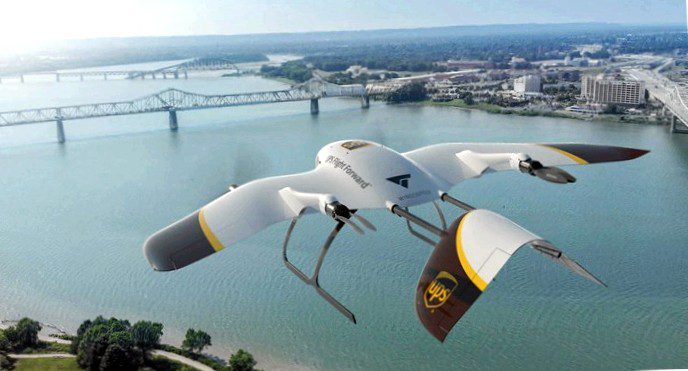
With the speed of an ICE train, the Wingcopter brings medicines and vaccines to any desired location. (Photo: Wingcopter) The Wingcopter is a drone that transports medicines and vaccines from point A to point B at speeds of up to 240 mph. The two founders started tinkering with such a solution early on. So says one of the founders and CEO, Tom Plummer:
Back in 2012, my co-founder and CTO Jonathan Hesselbarth started building a type of drone that could take off and land vertically as well as cover long distances quickly and efficiently, in parallel to his mechanical engineering studies.
The developers were guided by successful models:
At that time, the legendary V-22 Osprey from Boeing served as his model. He quickly saw possibilities for improvement.
At the same time, Plummer was looking for an appropriate drone so that it could improve supply chains, especially in the delivery of medical goods in developing and emerging countries. Then in 2015, fate brought Plummer and Co-Founder Hesselbarth together through a mutual acquaintance:
We met and practically immediately decided to optimize and commercialize the technology for such delivery applications.
In the following years, the technology was steadily developed and then in 2017, together with the third co-founder Ansgar Kadura, Wingcopter GmbH was founded. Today, the Wingcopter team consists of 100 people and plans to grow further. The success of the drone lies in its versatility:
Our wingcopters are ideal for the rapid delivery of medical supplies such as medications, vaccines, blood products, samples or COVID tests.
This is especially helpful and effective in regions that are difficult to access:
The wingcopter is used especially in remote areas with poor infrastructure, where the delivery of urgently needed goods by conventional means often takes far too long.
Thanks to drones, waiting times can be reduced from hours or even days to a few minutes. They can just as easily be used to deliver packages, parts, meals or groceries. In the process, the current Wingcopter model is being steadily improved, and the next generation of delivery drones is being developed with partner UPS. Furthermore, the conclusion of a further financing round is planned. One can also be curious about the near future, because Wingcopter is pursuing highly topical goals:
Concrete projects we have u. a. planned in the COVID area, z. B. to deliver vaccines to remote regions.
On the road with fuel cell technology
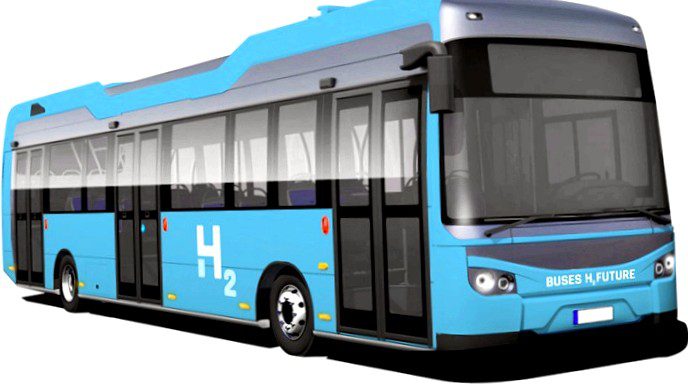
Being mobile and ecological even over longer distances: No problem with these buses. (Photo: Buses4Future) Mobile towards the future with Buses4Future: the company manufactures buses powered by fuel cells. This is at the same time the outstanding feature, as founder Dr. Hans Hermann Schreier explains:
Other bus manufacturers are buying fuel cells to go with their buses. We, on the other hand, have developed our own drive and sustainably proven that our business model works.
Preceded by a development project. Meanwhile, buses are on the road, u. a. in a larger city in North Rhine-Westphalia. The Lower Saxony state winner builds on these successes. The open cooperation with neighboring partners helped in this:
Together with our Dutch colleagues, we developed a very good, competitive powertrain. Our line consumes only 6 kg of hydrogen, while other suppliers start at 9 kg.
Collaboration is proving fruitful on multiple levels. As Schreier reports: "We have also gained new insights and deep insights into quality assurance.
The fuel cells do not need to be changed, only the membranes. According to Schreier and his colleagues, this means that quality assurance of the components is in their own hands down to the nanometer. Modesty and the support of partners have led to success. Schreier himself thus provides insights into the development process of the young company:
We did not pay ourselves salaries in the early days and appreciated that NBank supported us with a start-up grant.
This should lay the foundation for the present:
The most important thing for us is to show that we are coming in as a small business, that we are recognized as a business.
The plan for the future is to find an attractive location with a diverse funding landscape.
Knowing the nature of the road
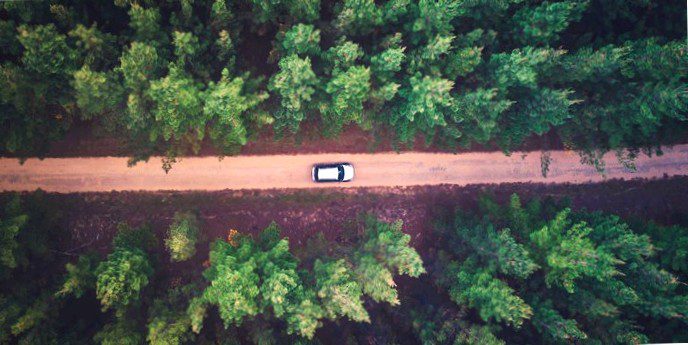
No more nasty surprises while driving: With Bareways, you get valuable information about the route. (Photo: Bareways) The company Bareways helps drivers know the specifics of driving routes even before the tires touch them. This way, unpleasant surprises such as roads that are difficult or almost impossible to drive on should be a thing of the past. The idea for this mapping service came to Moritz von Grotthuss when he found himself in such a situation:
In very concrete terms, the idea came in November 2017, when I got stuck as a passenger on a snow-covered forest road. I could not explain why the car did not know what the route was. This was the beginning of assistance systems in the technical field.
From then on, there was a desire to develop an appropriate solution that would make the mobile driving experience safer and more efficient. According to Grotthuss, it is important to ask the right questions.
We do not need to ask: where is another way, more important is the question: what does this way look like? How do the roads change when it rains, what happens when a lot of trucks drive over them or when no vehicle drives on the route for three months??
In this way, bareways could become standard in motor vehicles. Combining Big Data and AI to create a data layer that can be integrated into existing navigation systems. And for whom is the solution suitable?
Actually for everyone who moves in the rural area and does not live locally.
Thus, Bareways is interesting for the agricultural industry with contract drivers, for bush cabs (Uber in Rwanda), but also for the private person who borrows a car in Namibia and does not know the region. Von Grotthuss sums up the vision:
The idea is to drive beautiful routes, see beautiful places, we are a bit like the Lonely Planet of navigation, a bit off the beaten track.
In 2021, the company is launching a corresponding app.
Mobile gas pumps for e-cars
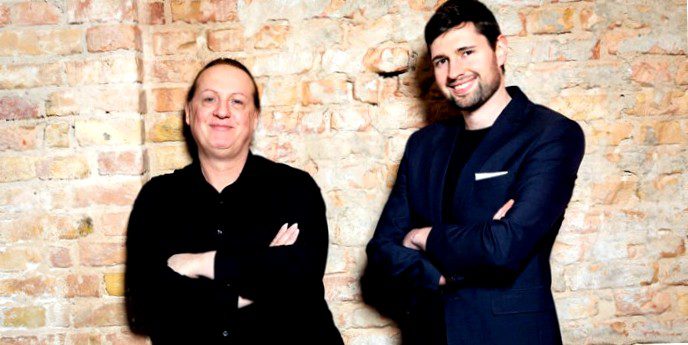
No more worries about running out of electricity: ME Energy founders Holger and Alexander develop overland charging stations for electric cars. (Photo: ME Energy) The startup ME Energy – Liquid Electricity produces electronic fuel pumps for e-cars. For Founder and CEO Alexander Sohl, the impetus was the meager coverage with recharging options in Germany:
We found that the current charging infrastructure in this country is inadequate and wondered why it doesn't yet exist.
Why is that in a country as highly developed as Germany? Couldn't you just tap into electricity from a grid provider? Unfortunately, it's not that simple, as Sohl notes:
You can't just buy any generator and connect it to the power grid, that doesn't work.
The alternative to gas pumps are high-performance batteries that function like power banks for e-cars. However, these batteries are at a disadvantage compared to ME Energy's technology:
These batteries are the same storage medium as in the car: I can only store a very limited amount of energy with them. We have a different amount of energy, we take a much higher energy density.
Unlike the batteries, the stations do not have to be constantly transported back and forth by truck. This saves driving costs and makes the charging stations attractive to customers, which is ME Energy's stated goal:
It should become easy and profitable to set up the charging stations. That's why we're also in the process of reducing investment costs and planning time.
It's not just technical understanding that's important here, but also an economic approach:
We have to see this as a business, then soon there will be nationwide fast-charging options.
Fast image recognition with innovative sensor technology
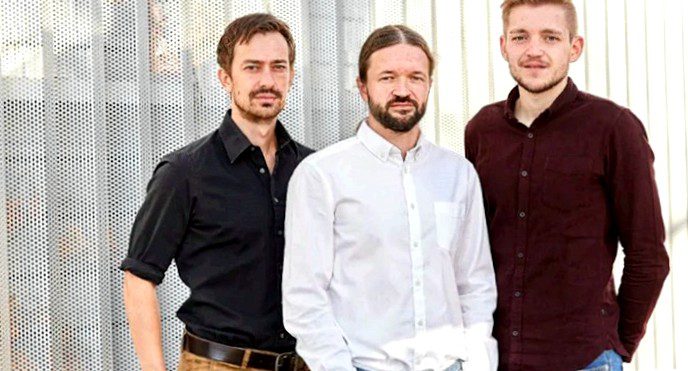
More safety through better quality testing: DENKweit's technology should also gain a foothold in international markets. (Photo: DENKweit) DENKweit combines neural networks and modern sensor technology. This will enable improved quality control, for example for batteries in cars. Dr explains how important this is. Dominik Lausch, CEO of DENKweit:
Small contact errors can have dramatic consequences in the vehicle, including so-called burning events triggered by battery fires.
The Hallens-based company's technology is used to test the battery and the contacts that can cause fires when they work together. Lausch and his team sensed early on the potential in their idea of measuring electrical currents:
It was clear to me in the first second that this is something new that brings a new approach in photovoltaics.
Measurements are no longer taken on the outside of the battery, but inside, which is referred to as location-triggered:
We can also judge the direction of the current where something happens, that is also something special about our measurement method. It allows us to evaluate electrical contacts extremely well.
The successes spur us on to open up other markets:
In the battery sector, we want to offer a measurement method that brings added value to manufacturers and users in order to grow globally.
There is no fear of exploitation. But they do have down-to-earth goals with vision: The big goal is to build a successful medium-sized company. For this, the company relies on cooperation:
Our strategy is to work in partnership and with a wide variety of business models.
For the DENKweit team, therefore, the principle is to prefer to share and succeed together rather than maximize profit by hook or crook. Easier said than done, as Lausch knows, after all, profits still need to be made. However, he and his team decided to take a different approach:
For our grand strategy, we are open to cooperations of various kinds.
Recently, for example, the start-up had an evaluation for fiber optic cables and thus won a contract away from batteries. But things don't always work out so well: the entrepreneurs have also had negative experiences with partnerships. But how can you recognize a dubious partner?? Lausch points out: